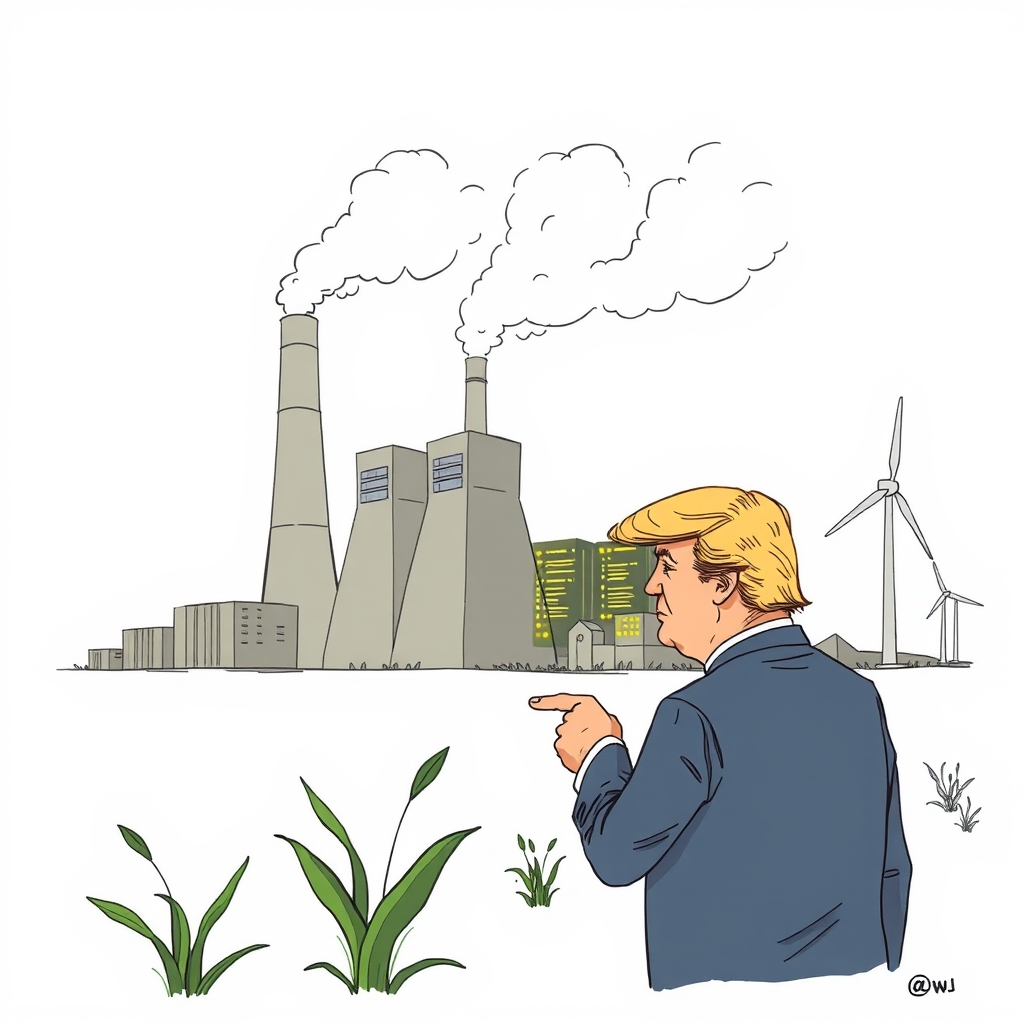Trump Revives Coal, Cites AI Power Needs

President Trump has moved to revitalize the U.S. coal industry, signing executive orders intended to remove regulatory hurdles and potentially reverse the closure of coal-fired power plants. The administration frames the move as necessary to meet the burgeoning energy demands of artificial intelligence technologies, aiming to more than double electricity production from coal. Surrounded by coal miners, Trump directed the Department of Justice to challenge state and local regulations perceived as detrimental to the coal industry, vowing to end what he characterized as governmental bias against it. He also highlighted the potential for increased extraction of critical minerals and rare earth elements during the coal mining process.
The decision has drawn sharp criticism from environmental groups. Lena Moffitt, director of the climate NGO Evergreen, accused the administration of using AI as a pretext to support fossil fuel interests, labeling coal “the dirtiest, most expensive power source.”
This push comes as coal’s share of U.S. electricity generation has steadily declined over the past fifteen years. In 2023, coal accounted for just over 16% of total electricity production, falling behind renewable energy sources which reached just over 21%.
The move aligns with Trump’s long-standing skepticism regarding climate change and represents a continuation of his efforts to boost fossil fuel production through deregulation since returning to office. Last month, his administration announced a series of environmental rollbacks targeting the green policies implemented by his predecessor, Joe Biden, including a review of a 2024 rule requiring coal-fired plants to drastically reduce carbon emissions or face closure.
While the administration argues this is about securing energy independence and powering future technologies, the decision appears to prioritize short-term economic gains for the coal industry over long-term environmental sustainability. The reliance on coal, a significant contributor to greenhouse gas emissions, directly contradicts global efforts to mitigate climate change and transition towards cleaner energy sources. The justification of increased energy demand from AI feels opportunistic, given the potential for powering such technologies with renewable alternatives. Ultimately, this policy shift represents a significant step backward in the fight against climate change and raises serious concerns about the future of U.S. energy policy.